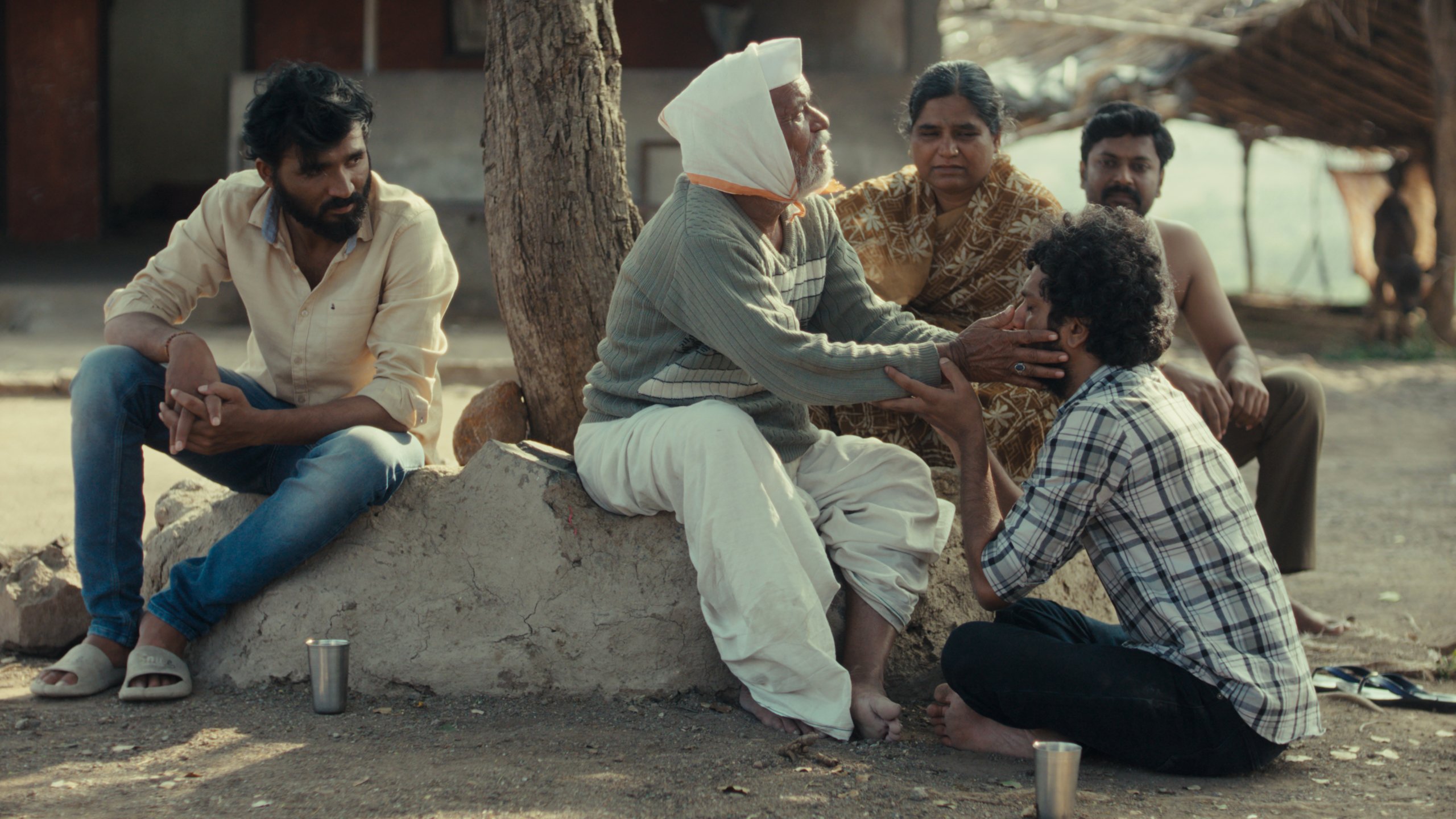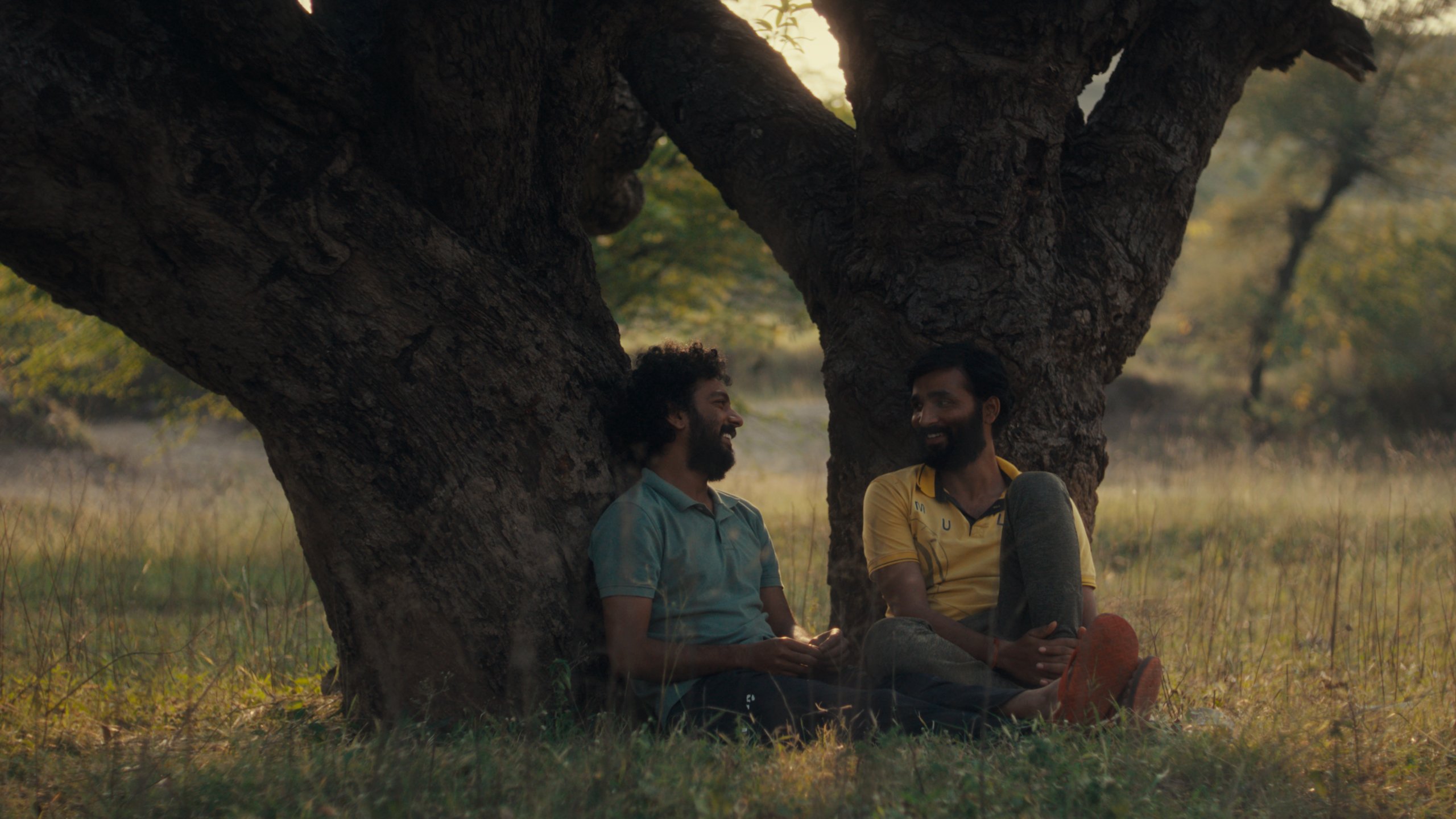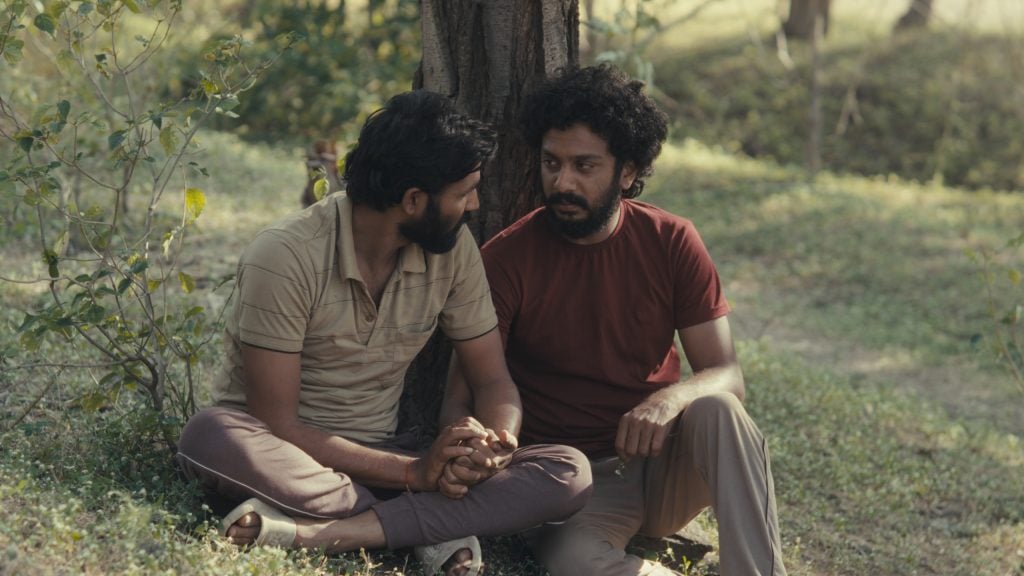We all know (hopefully) that art, in all of its many forms, has the capability of opening the viewer (or listener) up to a completely new experience. Yes, who we are informs our engagement with the art, but we can still learn and grow from art that is rooted in an entirely different culture or experience. Just this year, we have many examples. Sinners is a Black and immigrant story. Die My Love is a rage-fueled story about womanhood and motherhood. Eephus focuses on an aging perspective. And yet, no matter your background, there are lessons and experiences to be gained from each piece of work. It is incredible that films can be both relatable and open us up to new lives. One such new life is pictured in Rohan Parashuram Kanawade’s Cactus Pears (Sabar Bonda).
This film introduces us, in relative silence, to Anand (Bhushaan Manoj), who has been called to a mandatory 10-day mourning period after the death of his father. Anand, who lives in the big city of Mumbai, is immediately uncomfortable in his ancestral village. Kanawade is unafraid to use long, slow, static shots that can be equally frustrating and representative of his ire towards the inherently measured pace of rural life. The directorial choice, aided by cinematographer Vikas Urs, to focus in many shots on the top half of the face provides a few advantages. The removal of the facial expressions forces us to feel however we may, without being aided by smiles or frowns. Additionally, it serves that slowness and draws us closer to the screen, almost willing the camera to pan down. The numerous shots of nature, whether of the water, landscape, or the animals, are awe-inspiring, all while helping us understand where Anand comes from.

As Anand’s eye, and the camera’s, moves through the village amidst its sadness, we find Balya (Suraaj Suman). He is Anand’s childhood friend, and, even without words, it becomes clear that they share a mutual attraction. The film refuses the easy routes towards passion, instead leaning on moments of hesitation leading to touch. There is one powerful moment in which, after swimming together, Balya sees Anand shivering. His choice to warm his hands before holding Anand close tells us everything we need to know. He desires him, but he also cares about his comfort. Additionally, he pauses, seemingly to be sure that the feelings are mutual. It is a film filled with sweetness, but without the obvious placations of speech.
The film also makes a clear point about city life and country life. Just as in the United States, many queer people run to the big cities to live a freer existence. But this does not mean that queerness doesn’t exist on farmland. Balya uses this to his advantage in his avoidance of marriage. He knows that the women he comes into contact with wish to marry “up,” so he stays herding goats, being as happy as he can with, as he calls them, “special friends.” More than anything, Cactus Pears challenges our assumptions: of place, of sexuality, of family, and especially of culture.

The cactus pear, sometimes known as the prickly pear, provides the perfect metaphor for the men in the film. The fruit looks unwelcoming, sometimes even dangerous. But once you carefully remove the tiny spines, you can open it up and be ultimately rewarded. Kanawade, in dramatizing some of his own experience, has opened himself up and shown the vast breadth of Indian queer experience. At every point at which a viewer may think they know what is coming next, they are inevitably incorrect. There is nothing obvious about the film, and it demands that you travel with Anand, as he finds a way to himself.
As much as this is a queer love story, it is also about life, death, and family. Anand’s relationship with his mother, Suman (Jayshri Jagtap), is what holds everything together. Now that his father is gone, she is representative of the family unit, and with that comes judgment and fear, at least that is what we think at the introduction. As she tells him that he is wearing the wrong color clothes and acting improperly, our own assumptions begin. As that relationship begins to open up, and the mourning stretches, almost interminably, we are allowed to see both Anand and Suman as real people, and not simply symbols of parenthood and a man desiring to be back in his own comfort zone.
Although the pace may be difficult for some viewers, Cactus Pears, much like its namesake, is worth the time and effort. Slowly working its way into our hearts, this story, which at first seems distant, slow, and not of our particular place, becomes simply human and connected. Kanawade, as both writer and director, provides a gift in sharing his experience, mourning, and love.
Cactus Pears is currently playing at the IFC Center in New York courtesy of Strand Releasing. The film will expand to Los Angeles on November 28th, followed by additional markets in the coming weeks.
Although the pace may be difficult for some viewers, Cactus Pears, much like its namesake, is worth the time and effort. Slowly working its way into our hearts, this story, which at first seems distant, slow, and not of our particular place, becomes simply human and connected.
-
8.5
-
User Ratings (0 Votes)
0
Dave is a lifelong film fan who really got his start in the independent film heyday of the 90’s. Since then, he has tried to branch out into arthouse, international, and avant garde film. Despite that, he still enjoys a good romcom or action movie. His goal is to always expand his horizons, through writing and watching new movies.






